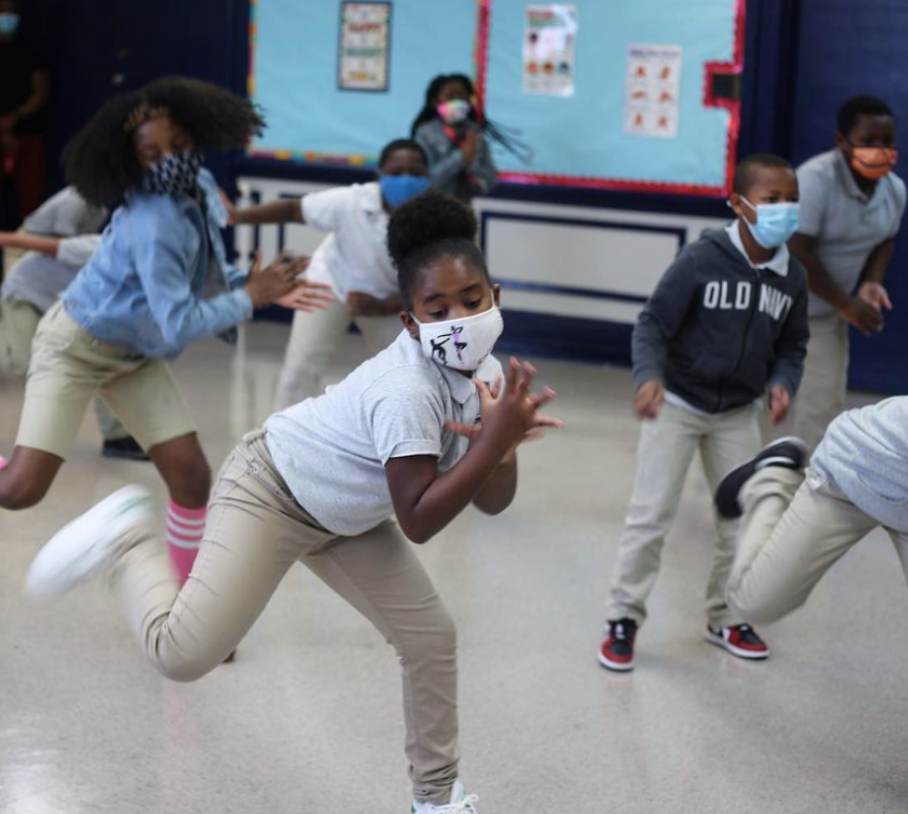Students tending to the school garden at Foundation Preparatory Academy
In New Orleans, all public schools are charter schools, and their leaders report directly to nonprofit charter boards. Charter boards are small groups of community volunteers who ensure the school is fulfilling the promises made in its charter document, and meeting its academic, financial, and organizational obligations to students, families, and staff.
Alysson Mills is Chair of the Board for Community Academies of New Orleans (CANO), a charter network that includes Esperanza Academy, Foundation Preparatory Academy, Lafayette Academy Lower School, and Lafayette Academy Community Middle School. We spoke with her about this role and what it means to her.

Mills was drawn to the work, in part, by her belief in public schools, which she attended throughout her educational career. She is a graduate of the University of Mississippi Law School and is now a partner in her own law firm.
“It means a lot to me to be able to contribute to public education locally,” she explains. “It is the best way to ‘level the playing field’…I just see it as the only solution to so many problems.”
Mills feels that education is “the most important thing any government can invest in…and we’re not investing in it like we should.”
For her, lending her time and expertise to CANO’s board is part of a personal investment. She and her fellow board members come together each month to talk about facilities, finances, schools’ progress. Sometimes, Mills explains, they’re troubleshooting getting a broken air conditioner fixed. Other times, they’re allocating funds across schools and making sure they are used equitably toward students’ needs.
A charter board also plays an important role regarding school leadership. In a charter network like CANO, the board both chooses and supports the network’s leader, or CEO, who in turn leads principals.

“Our members come from different backgrounds and have different careers, and they bring different expertise to the decisions they make. But really the big decision…is to hire the organization’s leader,” Mills says.
“We have a really, really wonderful CEO, Myralis King, and we put a lot of trust in her. She’s responsible for the management of the organization. It is our duty to listen, to receive reports from her, to ask questions of her, to make sure that she’s doing the kinds of things kids need,” Mills explains.
Last year, the CANO Board was called upon to listen, receive reports, and ask questions of the most important members of the CANO community: its students. Mills and her fellow board members were judges in the network science fair.
The judges congregated in the gym at Lafayette Elementary School at the Paul L. Dunbar School site. Given the constraints of COVID-19, students participated virtually. Some dropped off physical artifacts or poster boards in the gym beforehand, and others presented in full online. The science fair coordinator, Nikki Dominique, who is the Director of Math and Science at the network, filmed the judges’ reactions and reflections and broadcast them back to the students participating from home.

Mills was impressed with the experiments and presentations she saw, both the “tried and true” classics, and ones she’d never seen before.
“There were lots of volcanoes with baking soda and vinegar. We had a student who monitored the growth of plants from seedlings based on their exposure to different sunlight. We had lots of Skittles projects. I think one of them involved how long it takes for the Skittles’ hard surface to erode in various substances,” Mills says.
A few girls came together on a single project around hair products, comparing different edge control gels using scientific practices. Another student worked to replicate an electrical experiment by the engineer and inventor Nikola Tesla.

“It was a cool thing to see students across the schools and their teachers and their parents pull off something like that,” she says.
Mills felt the fair was a success–so much so that she can’t remember who won, because every judge felt so impassioned about a different project being the best.
Sometimes, Mills is called upon to use more specific expertise. As a lawyer, she brings important knowledge, skills, and insight to the charter network’s interactions with outside contracts. Mills doesn’t act formally in her capacity as a lawyer, as she feels it’s best to have an objective outside attorney for serious matters. But last year, for instance, she handled a tough issue with a contract from a vendor.
“I was able to do that because I’m a lawyer…I like being able to assess risks or ask the right questions,” she says.
Together with her fellow Board members, Mills will keep asking important questions. She says the best one isn’t legal, though. It is a simple question about what children deserve.
“The thing I hear our school leaders say over and over is, ‘we do what is right for our kids,’” she explains. When they see a problem, they ask themselves to find the right answer for their unique students.
“And I think that,” says Mills, “really reduced to its essence, is probably the right question all the time.”
